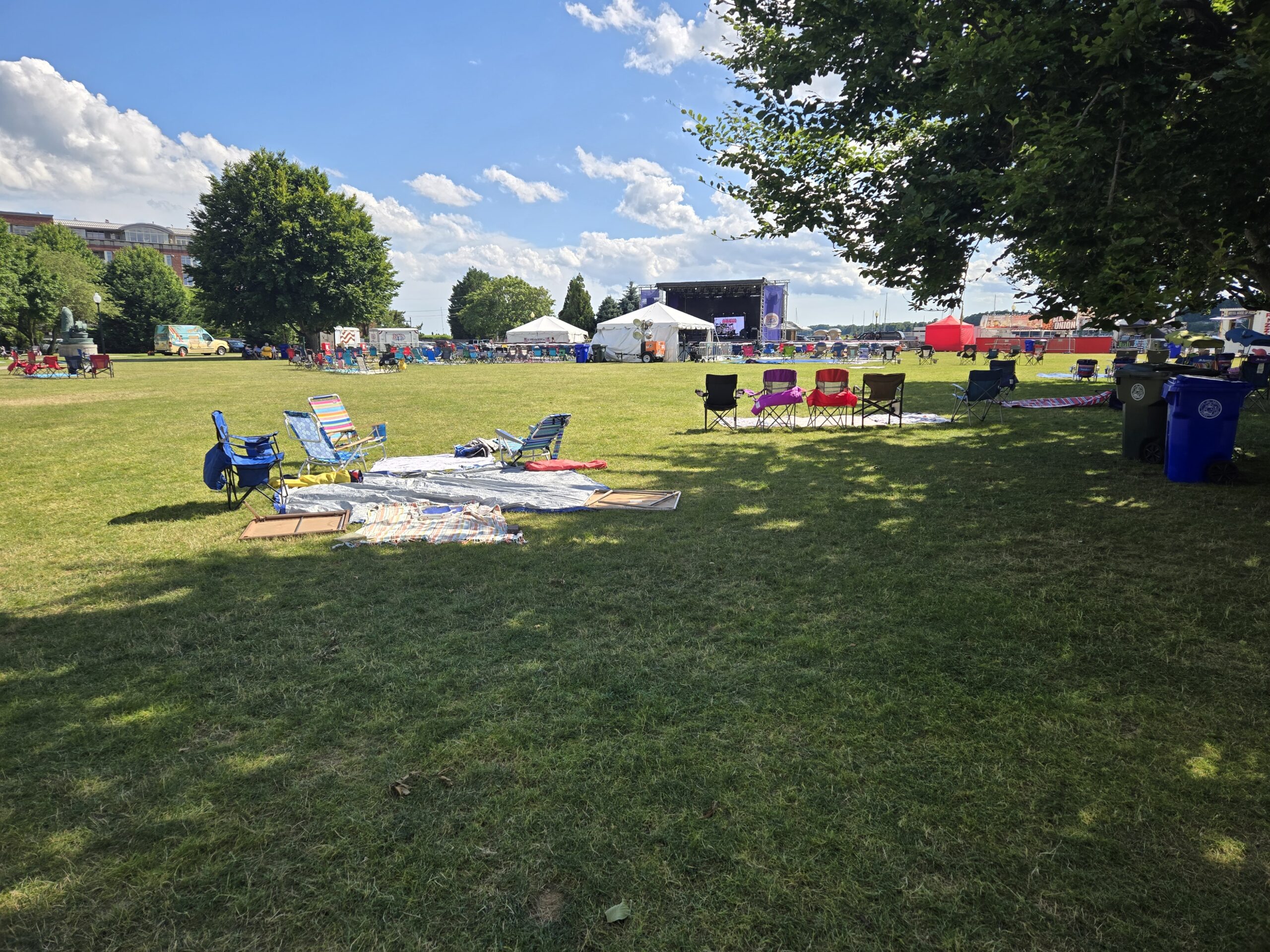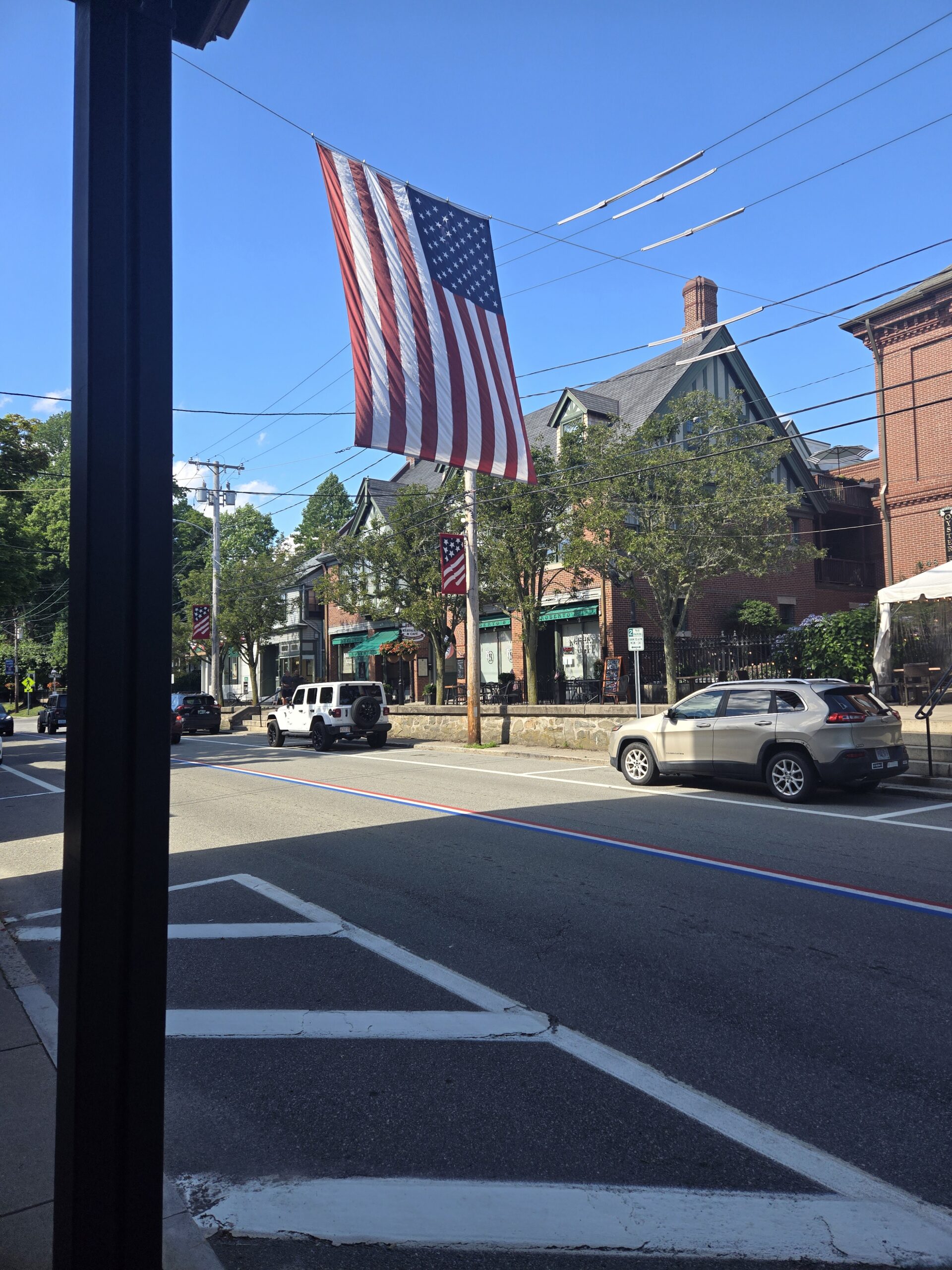Celebrating the Fourth of July in Bristol
The Declaration of Independence happens to be one of my favorite historical documents, so it is perhaps fitting that I live in a town that wraps its identity in the Fourth of July bunting festooning its historic downtown beginning in mid-June.
Bristol, Rhode Island is home to the oldest Fourth of July parade in the nation and the Fourth is less a day and more a season here. Between the bunting, the American flags, and the red, white, and blue median running through the historic downtown and marking the parade route, you’d be hard pressed to miss it. Or to avoid getting swept up in the spirit of the day.
Celebrating freedom in this town, which dates back to 1687, also has a special significance for me, as one of my ancestors was among Bristol’s founders.
My maternal grandmother can trace her ancestry directly back to Nathaniel Reynolds, who was one of the original town settlers and founders. Historical records indicate that Reynolds, an English immigrant, inherited a significant amount of property in Boston from his father and served as the captain of the Massachusetts militia prior to moving to Bristol, where he also held several other prominent community roles.
But not all my family’s early years in this country were so prosperous or so lucky.
Though Reynolds was British, much of my maternal family’s ancestors were Scottish. They fled Scotland during the Highland Clearances, a dark period of history beginning around 1750, when tenant farmers in the Scottish Highlands were violently forced from their homes, sometimes by the physical burning of their home, to clear the land for the raising of sheep, which were cheaper to keep.
The immigrant patterns from Scotland to America around this time are bleak, with many stepping upon the shores of the new world as indentured servants. British repression of Scotland also resulted in a number of Scots coming to the new world by force, as prisoners of war sold into indentured servitude. My own family immigrated to Maine, by way of Nova Scotia.
The Fourth of July brings these two disparate tales into stark contrast for me. And I’m acutely aware, as I have the good fortune to laze about in the parks dotting Bristol’s harbor, not far from where my ancestor’s house once stood, that freedom means something very different to me than it does to the generations whose actions brought me to where I am.

Freedom, for me, is a daily reality in every aspect of my life. It’s a given; it’s not something I worry about attaining or having taken away.
That assumption that freedom is an indelible part of the fabric of daily life wasn’t a reality for many of my ancestors when they first stepped foot on American shores, or for many other people’s ancestors.
Bristol also has a darker history. One of its most influential families, the DeWolfs, were among the nation’s most prominent slave traders; they continued to sell human beings after state and federal laws had been passed to make the despicable practice illegal.
It’s not actually the Declaration of Independence that’s my favorite document; it’s Thomas Jefferson’s first draft. And that’s because it contains a powerful lesson about the importance of ideals.
Among the charges Jefferson lays at King George’s feet is a potent diatribe against the evils of slavery: “he has waged cruel war against human nature itself, violating it’s most sacred rights of life & liberty in the persons of a distant people who never offended him, captivating & carrying them into slavery in another hemisphere, or to incur miserable death in their transportation thither.”
But that moral condemnation of slavery is notably missing from the Declaration we’re all familiar with. Jefferson ultimately capitulated to pressure from other members of Congress, who removed the passage. Writings from throughout his life highlight just how uncomfortable Jefferson was that the practice of slavery continued.
And that, to me, is what the Declaration of Independence, and ultimately the Fourth of July, represent: the power of ideals when they’re clung to and fought for regardless of political expediency.
The Declaration of Independence, as eloquent as its words about self-evident truth are, amounts to nothing without the actions put in place to make those words and ideas a reality. Jefferson’s discarded diatribe against slavery demonstrates that. Had he lived up to the words he penned, perhaps freedom would have been a little more attainable for a greater number of early Americans.
We all live the benefits of those other moral ideals Jefferson penned and our Founding Fathers fought to defend.

But it’s not just the Founding Fathers who deserve credit for helping make the Declaration’s ideals about freedom a reality. The government they created is the framework for freedom, but it’s animating spirit is the actions generations of people have taken, fleeing oppressive countries and facing uncertainty for the promise of a better life in America.
Living in a place that’s connected to my family’s past helps remind me of these things, of both the highs that prosperity in a free society can bring, and the lows that those searching for freedom must endure. And I’m glad I get to celebrate the Fourth of July–the cultural culmination of the spirit of freedom–in a place that reminds me of these things.




